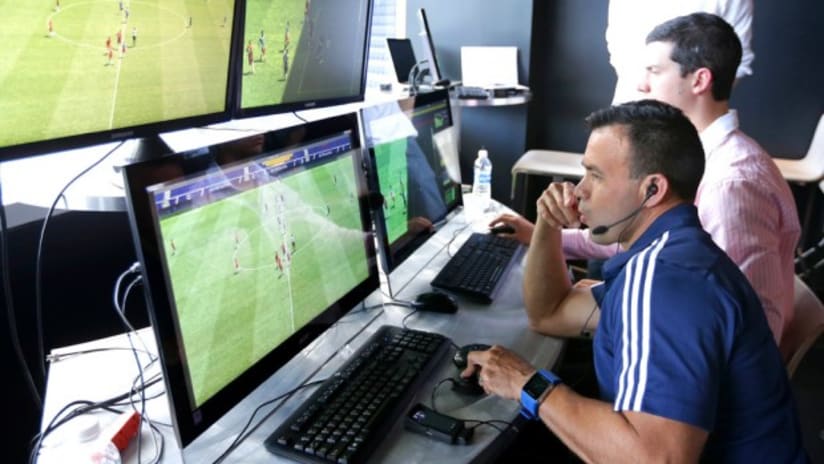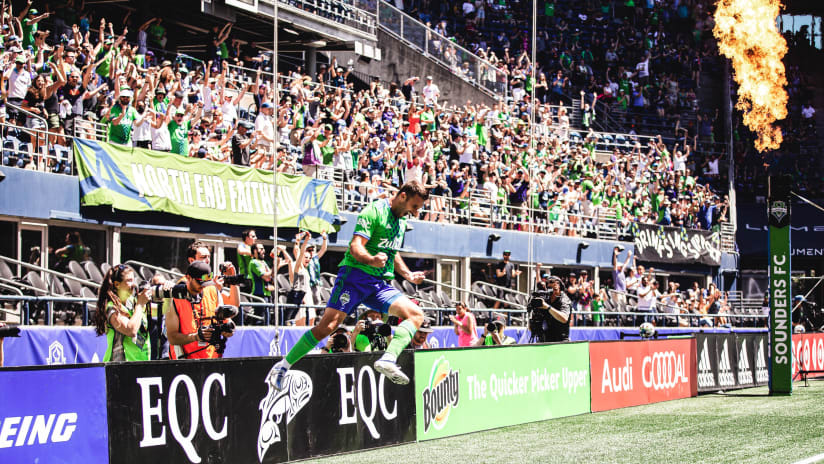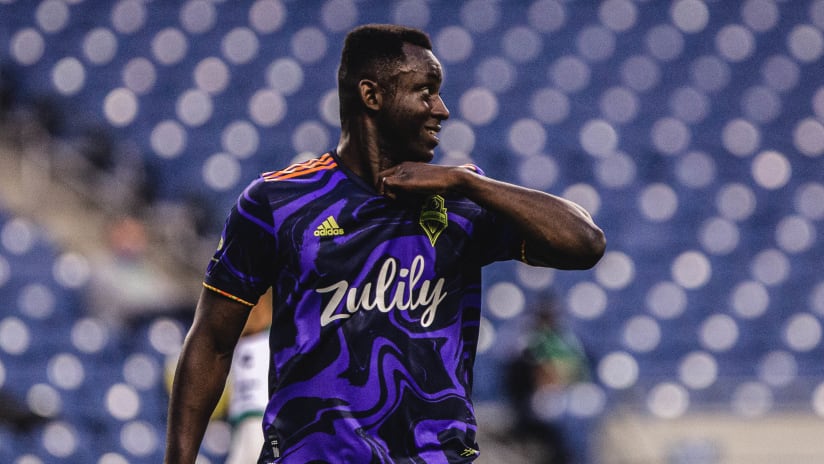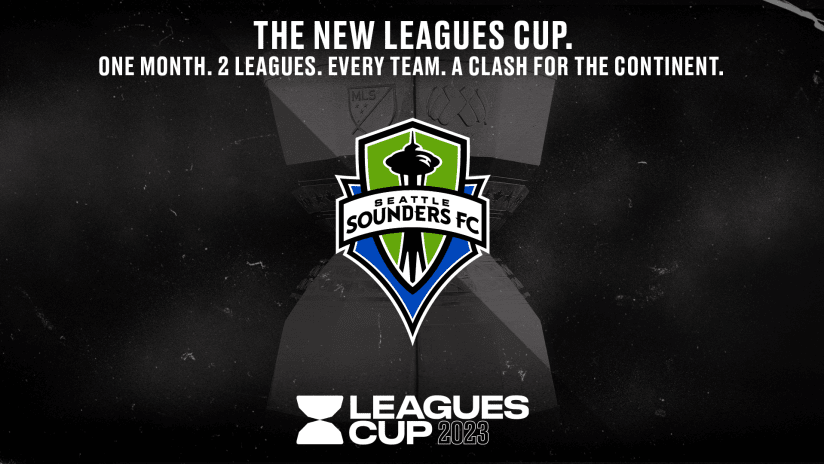When Major League Soccer officially implements Video Review on Aug. 5, it’ll mark the beginning of a new era in MLS history – and it’ll shut the door on a three-plus year process that brought the groundbreaking system to the league.
Video Review hasn't officially been written into the Laws of the Game just yet – The International Football Association Board (IFAB), the world body which oversees the rules of the sport, is expected to make a final decision in 2018 or 2019 – but as one of the few leagues around the world that will formally integrate it during live competition this year, MLS is eager to see it in action.
Since the start of 2014, MLS officials have been collecting data and working diligently behind the scenes to test the feasibility of bringing a replay system to the league. It was a move partially prompted by the league’s owners, who had long desired some form of replay in live matches.
Three teams – Philadelphia Union, Real Salt Lake and Vancouver Whitecaps – volunteered their stadiums as Video Review laboratories for the 2014 and 2015 campaigns. To hear MLS Vice President of Competition Jeff Agoos tell it, the early experiments were pretty rudimentary. The Union, RSL and Whitecaps set up an official, usually a referee assessor, in a booth at all of their home matches. The official would have the match broadcast piped into the booth on a couple of monitors, and would record both the length of time between decisions for key plays (goals, red cards, penalties, etc.) and restarts and how many replays of the play in question were shown in that time period, as well as other information.
“Essentially, we were doing as much work as we could to understand all of the issues and problems and trying to get a sense of whether there is enough time to get match-changing information to a referee without affecting the flow of the match,” said Agoos.
By the end of the 2015 season, after 102 regular season contests in the three test cities, MLS was comfortable enough with the research gathered to move forward. They found that on average it took about 60 seconds for a match to restart following a red card, and 90 for it to resume after a goal. Plenty of time, according to Agoos, for a Video Assistant Referee to review those calls using replay and relay their recommendation to the head referee.
Video Review is born
While they were collecting data, the league and the Professional Referee Organization (PRO), the body which oversees professional referees in the USA and Canada, were regularly meeting with IFAB and developing a recommendation for what the board’s Video Review protocol should look like. A group of league officials and club leadership finalized the recommended guidelines in late 2015.
According to Agoos and Portland Timbers owner Merritt Paulson, who helped design the protocol as a member of the MLS Product Committee, the league’s recommendation actually featured a slightly smaller set of reviewable plays than the four that IFAB settled on: Goals, penalties, red cards and mistaken identity.
While IFAB deliberated on what to include in their final protocol, MLS attempted to move forward with testing. The league and ownership were ready to go, and wanted to try their system with academy team matches during the 2016 Generation adidas Cup. The only problem? IFAB wasn’t yet ready to roll anything out. And it’s IFAB, not MLS, which controls the Laws of the Game.
The board, composed of the English, Scottish, Welsh and Northern Irish FAs and FIFA, didn’t release their protocol until March 2016, and asked MLS to hold off on testing replay in competition until after the guidelines went public. While the league couldn’t test anything out at the 2016 Generation adidas Cup (for youth academies), their interest in Video Review was duly noted.
“We were very involved and [IFAB] were certainly aware of the fact that our hand was up to be one of the first implementers,” said Paulson. “They embraced that.”
IFAB rewarded MLS’s interest a couple of months after they released their protocol, selecting the league in June 2016 as one of six around the world that got the nod to test Video Review over the subsequent “two to three years.” At that point, MLS and USL had already entered into discussions about the lower-division league potentially testing Video Review later that summer. IFAB approved that plan in early August 2016, with New York Red Bulls II and Orlando City B becoming the first teams in the world to play a match featuring Video Review on Aug. 12, 2016 (see below).
After testing the system in several more USL matches at Red Bull Arena last fall and hosting a number of Video Assistant Referee workshops for officials from around the world in the US, MLS Commissioner Don Garber announced in December 2016 that the league would seek to begin offline VAR tests at the start of the 2017 season and aim to fully implement Video Review after the 2017 All-Star Game. It was welcome news for Paulson and his fellow owners, who had been hoping for a replay system years before MLS began their Video Review research in 2014.
“I think it speaks to the fact that we’re willing to be an innovator,” Paulson said. “We’re a younger league in terms of [world soccer]. We’re 20 years old, we’re not a baby, but relative to other leagues around the world we’re very young. And I think we’ve got more of an entrepreneurial mindset because of that and more of an innovation mindset. We want this [league] to be the best it can be, on and off the pitch. Part of getting it right on the pitch is not just improving the quality of play, but giving officials all the help they can possibly get to get all the big calls right.”
MLS is ready
The massive task of retrofitting all 22 MLS stadiums with the infrastructure for Video Review technology and conducting the necessary offline tests kicked off shortly after the 2017 New Year. Paulson and the Timbers implemented Video Review at their annual preseason tournament at Providence Park in February and other tests occurred at preseason matches in Arizona, Florida and South Carolina. There were, inevitably, some early hiccups.
The Timbers owner recalled one preseason match in which the referee gave Portland midfielder Diego Chara a red card for violent conduct after a lengthy Video Review, which ultimately resulted in the correct outcome. But no PA announcement followed the ejection, creating some serious confusion for the 10,000 fans at Providence Park (watch video below beginning at 1:00 mark).
The league is confident those in-stadium issues will be ironed out come Aug. 5. Referees might take a little more time to adjust to the new initiative, but they’ve been thoroughly trained this year. Their onboarding is being led by longtime English Premier League and international referee Howard Webb, who was hired by PRO in February to manage Video Review operations.
Under his watch, every PRO official has refereed at least one match featuring Video Review – some online, others offline – in regular season, preseason, USL or Generation adidas Cup play. With the amount of practice they’ve gotten, he’s confident that the official rollout will go smoothly.
“We’re seeing those guys become much more adept,” Webb said. “We’ve seen the benefits of not rushing this process. In fact, IFAB, that’s what they wanted, they stipulated that they wanted between three and six months of training for countries who are coming on board with this. They don’t want it to be July and it’s live the following weekend. You have to go through this process, and we have done that. I think we’ll be as prepared as any country in the world when we do go live.”
Agoos and Paulson share Webb’s confidence, though both said they expected some speed bumps in the early days of the new system. There might be a few seconds or minutes added to certain matches to start, but the league, teams and referees see those as minor inconveniences compared to the frustration of having a match determined by an incorrect call.
“If you’re a fan of a team, there’s nothing worse than losing a game because of a clear and obvious officiating mistake – it’s a cruel enough sport anyway,” Paulson said. “We’re not going to eliminate all of those, but we’re certainly going to give the officials some extra help in getting the biggest calls right. How can that be a bad thing?”







